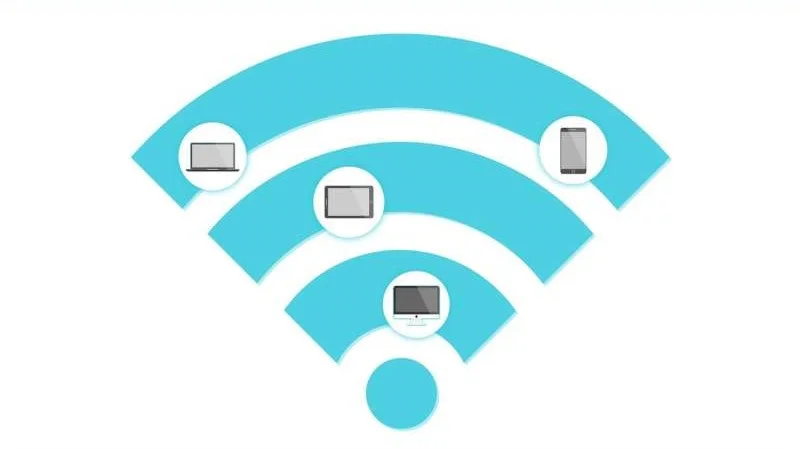How to stay safe when using public Wi-Fi?
- October 17, 2023
- 0
Connecting to Wi-Fi in the comfort of your home is not the same as using a public Wi-Fi network. Public Wi-Fi often lacks encryption; This puts your personal
Connecting to Wi-Fi in the comfort of your home is not the same as using a public Wi-Fi network. Public Wi-Fi often lacks encryption; This puts your personal

Connecting to Wi-Fi in the comfort of your home is not the same as using a public Wi-Fi network. Public Wi-Fi often lacks encryption; This puts your personal information such as passwords, credit card information and private messages at risk.
This doesn’t mean you should avoid public Wi-Fi altogether. There are ways to stay safe while browsing the internet in a coffee shop or airport. In this article, we share seven tips you can use to stay safe on public Wi-Fi.
To minimize your chances of being hacked, try using a network you trust, such as a hotel, airport or cafe network. These networks often have additional security measures such as firewalls or network monitoring to prevent cybercrime.
Always be careful when connecting to networks with generic or misspelled names, as cybercriminals can potentially create them. It is very important to check the legitimacy of the network before connecting. If in doubt, ask the organization’s staff for official network information.
When you install a VPN, you make it extremely difficult for hackers to intercept your data, no matter what network you’re connected to. This is because a VPN encrypts your internet traffic and routes it through a remote server, effectively creating a secure tunnel for your data.
VPN also adds an extra layer of anonymity by masking your IP address. This makes it even more difficult for cybercriminals to track your online activity or determine your physical location.
A masked IP address also has the advantage of accessing information or content available in another country. For example, a user with a VPN server in Canada can access information in that country even if they are in the USA.
To ensure safe browsing, users should always check the “https://” address; in the website URL. This small but important detail means the connection is secure.
Additionally, modern browsers often display a lock icon in the address bar to indicate that the connection is encrypted. These visual cues provide instant reassurance that your data is safe during online transactions.
You should also look out for typos or unusual characters in the website URL. This could mean you are on a phishing website.
Always turn off file sharing when connected to a public Wi-Fi network. File sharing can pose a potential security risk by accidentally exposing your sensitive data to other network users.
File sharing is configured by default in many operating systems. This means that if you don’t disable this feature, your device may accidentally share files and folders with anyone on the same network.
To turn off file sharing, go to your device’s settings and look for file or network sharing options. From here, you can turn off this feature to keep your files private and inaccessible to other network users.
In addition to turning off file sharing, restrict access to certain folders or files in your device settings. This extra step ensures that sensitive information remains inaccessible even if file sharing is accidentally enabled.
Once you connect to a network, your computer will automatically reconnect when you return to that location. This can put you at risk as you may connect to a public Wi-Fi network without even realizing it.
To prevent this from happening, be sure to disconnect your network connection and forget about it when you’re done. To do this, go to your device’s settings and find a list of saved Wi-Fi networks. Select the relevant network and select Forget or Remove.
You should also periodically check your list of saved Wi-Fi networks to make sure there are no suspicious networks that your laptop might instinctively connect to. This way, you can quickly identify and remove suspicious or unfamiliar networks, further strengthening your defenses against possible security breaches.
Be careful not to enter personal information when connecting to a public Wi-Fi network. Stick to simple online activities like reading the news, checking the weather, or doing a general search.
Reserve entering sensitive data, such as Social Security numbers, financial information, or sensitive business files, when you’re on a secure private network at home. This precaution helps protect your sensitive information from potential risks on public networks.
Despite the dangers of public Wi-Fi, 25% of people still access their bank accounts using public Wi-Fi. If you need to access your banking information, take extra precautions. Try using apps or websites that are known to be secure and double-check the authenticity of the website.
Enabling two-factor authentication greatly increases the security of your accounts, and more and more websites are using this security feature. Google reports that 70% of people use this method for added protection.
This extra layer of protection ensures that even if someone gets your password, they can’t hack your account. This extra step is an important protection against possible security breaches. Two-factor authentication can include:
This simple yet effective trick will strengthen your accounts and give you peace of mind.
To summarize, we can say that using public Wi-Fi is convenient but not always safe. By recognizing the vulnerabilities of unsecured networks, we can take the necessary security measures and protect our sensitive data.
Source: Port Altele
As an experienced journalist and author, Mary has been reporting on the latest news and trends for over 5 years. With a passion for uncovering the stories behind the headlines, Mary has earned a reputation as a trusted voice in the world of journalism. Her writing style is insightful, engaging and thought-provoking, as she takes a deep dive into the most pressing issues of our time.